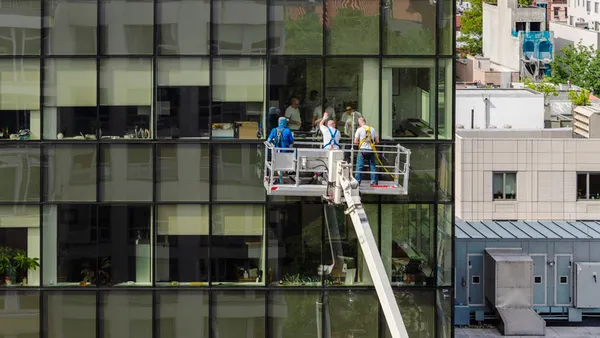Dive Brief:
- Minneapolis Mayor Jacob Frey unveiled a $50 million plan to reverse the city’s history of segregated housing around race and promote affordable housing.
- Frey’s proposal would put the money toward preserving existing affordable housing and building new units, as well as helping homeowners with down payments and supporting renters in low-income properties. It comes also as a reaction to what he called the "intentional segregation that restrains our economic growth, prevents inclusion, and hinders the exchange of ideas necessary for our modern-day success stories."
- In his inaugural address in January, Frey said the city is in the "midst of an affordable housing crisis," but that by working together they can change things. "If we commit to expanding affordable housing throughout our city, we’ll usher in an era where we finally embrace living among people who look different from ourselves," he said.
Dive Insight:
In his inaugural address, Frey spoke of the city’s history of racial segregation, with official maps in City Hall that describe North Minneapolis as a "slum" occupied by large black and Jewish communities. But he also emphasized the current crisis, where the city has lost 10,000 units of affordable housing in the past decade, meaning that there is less diversity in race and in income level.
And Frey has set an ambitious agenda to promote affordable housing, including getting more working people out of homeless shelters and out of the “cycle of homelessness.” His plan was developed by a task force appointed shortly after his swearing-in, and in a letter to Frey earlier this month, the commission’s co-chairs called on him to keep viewing the affordable housing crisis as a regional problem, as it is elsewhere. "We encourage you to continue to reach out to other cities in the region to engage in conversation and develop joint strategies to address our regional affordable housing needs," the three chairs wrote.
In his speech, Frey said that all is needed is the "political will" to make these plans a reality, and he appears to have the momentum with the release of this plan. And with reports like one in 2016 from the Minnesota Housing Partnership showing that renters in the city are at a higher risk of displacement, Minneapolis has a present opportunity to make progress.
There already appears to have been some movement, including an April vote approving a pilot program to reduce property taxes on apartment buildings where at least 20% of units are kept affordable at 60% of area median income (AMI). Frey’s plan shows he intends to keep things moving.










